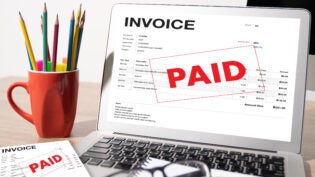
Understanding the coverages offered by insurance policies can help your small business survive in the event of an accident. In a time when every penny counts due to inflation and shrinkflation, there is an unexpected bonus. An essential insurance fact for small business is there are two types of policies an insured may see, the BOP and the CPP.
Small businesses can have two different types of property insurance offered, the Businessowners Policy (BOP) and the Commercial Property Policy (CPP). Understanding the distinctions between them is crucial, as they protect your business against risks in different ways. Which policy you choose could be the deciding factor between having to lay off your employees after a loss, to possessing the necessary resources to reconstruct and move forward post-accident.
Ali’s, a family-owned Mediterranean restaurant, had a series of accidents. Fortunately, no one was hurt, but their business may not survive the losses if they do not have the correct coverage. Here is how it works.
-
The contracts you sign can make you responsible for more than you think.
 Ali’s does not own the building where their restaurant is located; they signed a standard rental lease containing clauses that transfer responsibility for the building and the land’s upkeep. If a fire damages the kitchen, Ali’s can be responsible for repairing the damage even if they are not responsible for the fire. Ali’s type of insurance policy is important to fully protecting them, or leaving them with a large debt to the landlord resulting in a failed business.
Ali’s does not own the building where their restaurant is located; they signed a standard rental lease containing clauses that transfer responsibility for the building and the land’s upkeep. If a fire damages the kitchen, Ali’s can be responsible for repairing the damage even if they are not responsible for the fire. Ali’s type of insurance policy is important to fully protecting them, or leaving them with a large debt to the landlord resulting in a failed business.
A BOP is similar to a homeowners policy—both property and liability are packaged together. If Ali’s had this policy, coverage would be provided for the fire, allowing them to repair the kitchen and resume operations.
A CPP is more akin to a cafeteria plan where the insured chooses what coverage they need. Imagine the conversation between Ali’s and their insurance agent, who asks if they own the building. Ali’s confirms they are renting and want coverage for their contents. If the agent doesn’t ask about the rental contract and who is responsible for maintenance, then the insured will be repairing the damage out of pocket because they do not have coverage for the building. This coverage gap can put them out of business.
The rental contract can also extend to general liability and who is at fault in the event of an accident. Ali’s is responsible for parking lot maintenance. A customer injures herself when she falls in a pot hole. Ali’s will be liable for her medical invoices. In the event the claimant files suit against the property owner and Ali’s, Ali’s will be responsible for providing an attorney to the building owner.
Solution: Review your lease agreement to determine who is responsible for the building maintenance. Speak to your agent and confirm you have coverage for the building, if necessary.
-
Business Income Coverage is one of the most important coverages for small businesses.
Business Income Coverage (also known as Business Interruption Coverage) is one of the most overlooked coverages a small business owner needs. This coverage replaces lost income when you are no longer able to operate your business due to the covered loss. Because of the kitchen fire, Ali’s will be hard pressed to continue their operations, however business income coverage can cover ongoing expenses such as rent, payroll, taxes, etc. during the repair. It can also pay for a reduction of business. For example, if the fire damaged Ali’s dining room, Ali’s can continue to cook, but its income is reduced since they will no longer have dine-in customers. The difference between what they used to earn to what they now earn may be covered.
The BOP has this coverage automatically, yet, for the CPP, the small business owner must specifically request this coverage.
Solution: Business Income Coverage is a critical support system, supplementing revenues lost due to an accident when operations are interrupted. Review your policy to make sure you have business income coverage. Review your annual income to ensure proper coverage amount when requesting coverage from your agent.
-
If you don’t have an additional coverage for signage, you will pay a lot out of pocket.
Signs are important to a business and they are expensive. Many businesses have two signs: one attached to the building and a free-standing sign. In almost all cases, a free-standing sign is not covered unless specifically endorsed onto a policy. Free-standing signs are at risk for increased damage, such as drunk drivers hitting them or damage by weather events. Ali’s free-standing sign was struck by lightning and the repair estimate is $18,000.
Ali’s BOP will not provide coverage for this loss; it does, however, cover the sign that is attached to the building if it were damaged. The CPP has a sublimit of $2,500 for signs—regardless if they are attached to the building or free-standing, but this is the maximum amount payable. In addition, Ali’s must have building coverage on their CPP to receive payment. If they do not, Ali’s will pay for this damage out of pocket.
Both the BOP and the CPP have several sublimits, which is a limitation on the amount of coverage in a policy. A few of these sublimits are pollution clean-up and removal, increased cost of construction, trees, shrubs, and satellite dishes.
Solution: Business signage is typically excluded from standard policies and requires additional endorsements for comprehensive protection. Discuss property sublimits with your agent and add the correct endorsements to your policy.
In the End
Insurance helps businesses in the aftermath of a loss, but not having the correct type of insurance can often be as catastrophic as having no insurance. Your signed contracts can lead to unanticipated responsibilities with detrimental effects on your bottom line if you don’t do due diligence upfront. Understanding policies and coverages can determine whether or not small businesses survive a loss.
Chantal M. Roberts, CPCU, AIC, RPA, is a self-described insurance nerd with over 20 years of experience as a multi-lined claims adjuster. She is also an award-nominated author who has previously written two books, one for mid-career adjusters, The Art of Adjusting: Writing Down the Unwritten Rules of Claims Handling, and a creative nonfiction story about a 400-year-old French playwright, Molière, A Love Story: How the Heartland Fell in Love With a 400-Year-Old French Comedic Playwright. Her new book, Once Upon A Claim: Fairy Tales to Protect Your Ass(ets) (May 11, 2024), provides consumers with a better understanding of property and casualty insurance and claims, so they can become their own best advocates.
583 Views











